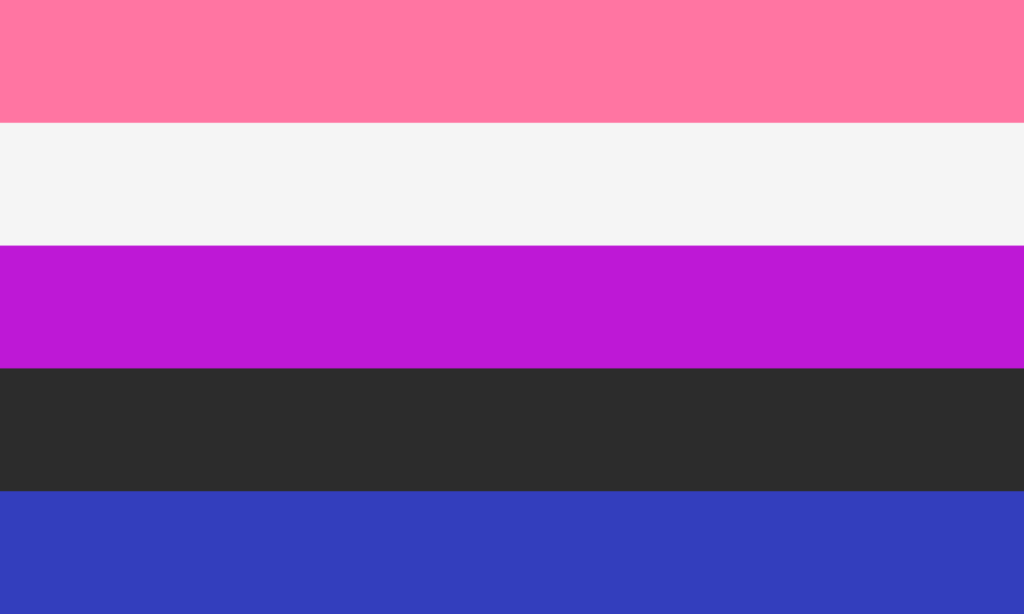
As a first-time mother, I endured the earnest “May god be with you” prayers of my parents’ generation. When my kids were teenagers, our home would become the cool space where kids could hang out, curse, and watch gritty streaming content. Intellectual discourse about feminism, chemistry, and beat poetry united the generations. As parents, we were readu for anything what with our vegan, gender-neutral household.
Enter reality. At twelve, our oldest child developed a restricted eating disorder. A few months later it seemed we’d done the right thing with early intervention, but I was called back to the school. My half-grown adolescent and I sat together on a small couch across from the school counselor and she shared her observations. There were incidents of cutting, a suicide attempt, and a hospitalization.
My husband and I spent the next two years reeling from our oldest child going from one newfound identity to another: as bisexual, agender, genderluid, nonbinary. And amid these pronouncements: “I was sexually abused.”
I wish I could write that I did not conflate sexual abuse with my teen’s gender identity and what the psychiatric field so dubiously refers to as “gender dysphoria.” Homosexuality, also once a psychiatric condition, was blamed on various factors: sexual abuse, overbearing mothers, weak or absent fathers, and so on. But today’s affirming websites teemed with information and images that my genderfluid peers once had longed for, just clicks away from my child’s keen eyes.
My fourteen-year-old had come out as trans. I dutifully ordered a chest binder, appalled to discover later that my teen hadn’t taken it off since putting it on for the first time. “You can’t do that,” I said. “The directions said so. No sleeping in the binder!”
This could have been humorous, but I focused on my new belief that sexual assault by a family member had changed my beautiful girl into a depressed, hostile, gender-questioning kid. I thought I was doing Avery (his chosen name) a favor by supporting (secretly tolerating) his new gender expression. My psychoanalytic revelation was that, because a man had harmed Avery, he wanted to become a man to protect himself. It seemed to make so much sense.
I cried a lot during that time, partly because my trans child’s biological sex had made him prey to the pedophile lurking in our family. But also because I wanted to save Avery from the horror that is a sexual assault by welcoming my teenager into the circle of female survivors. How I wanted to fill my child with love and empowerment, and instill a healthy fear of men. One had betrayed me when I said no, after all. I knew the drill.
When my teenager came out as trans-male, I blamed myself. I blamed exposure to the family pedophile and the Internet and peer influence and the educational system. The progressive public middle school we had chosen for our kids now seemed suspect.
I wish I hadn’t been afraid to attend the local support group advertised for parents of trans teens in our community. Maybe I would have discovered that my responses were not unusual. I was not the only parent who took out the photo albums after bedtime and wept. My grief was not something to be ashamed of, and nobody would assume I was transphobic because I didn’t want my child to be trans.
I didn’t want my eldest to be male because it disrupted the entire trajectory of the life I had envisioned for him. We had raised him as a girl, and this made him vulnerable. I will not soon forget the day I had to remain outside the men’s bathroom in Target, holding my hand over my mouth so I wouldn’t scream in panic after Avery proudly walked inside. I was haunted by fears of rape, murder, suicide, medical problems. What if I didn’t hide my despair or wasn’t supportive? Raising a girl was bad enough. But raising a boy who looked like a girl who went into men’s restrooms unnerved me to my core.
Since then, I have learned that Avery’s gender change is not my fault. I’ve learned that sexual abuse was not the cause of Avery’s discovery of something he had always known: that he just didn’t feel comfortable as a girl. I’ve learned why Avery no longer wants us to call him by his “deadname.” Still, the name “Avery” can’t erase the day my newborn baby’s warmth spread over my chest moments after birth and my husband agreed to name our daughter after a French resistance worker of importance to our family. That moment is ours, and we don’t have to part with it. I’ve learned it’s important to grieve, not because someone has died but because they have gone away and returned from a new direction.
The complicated tears I wept now make sense. Gender as a binary construct guided my upbringing and was reinforced by Second Wave feminism. Avery lived with genderfluid feelings for a very long time, but I had just found out, and it was understandably jarring. Avery hadn’t planned to wear a dress to the prom, or have long hair, or sing as a mezzo-soprano. Those were my dreams, I now concede.
Avery is twenty years old, married, and lives in another country. He tells me he doesn’t care what pronoun I use anymore, and he’s changed his name to something less gendered and more “him.” He takes testosterone but hasn’t decided for how long he’ll continue. His appearance, he has explained to me, is performative, because gender is a performance. “I’m more comfortable with it that way,” he explained. “I don’t want to box myself in by insisting on a pronoun or a ‘look.’ I want to be comfortable in my skin, and that changes every day. It’s not really that different from when you pick your outfit for the day. I just have a broader range of styles.”
It’s impossible to put into a few words the pride I feel for this person. Maybe our kids are teaching me what I thought I knew before we brought them into this world, or maybe these universal statements take on a whole new meaning when reflecting over the years. Good parenting, come to find out, means learning how to shut up and listen. Good parenting means applying what you’ve learned from your kids to your life and theirs in order to be a better human.

Caitlin Billings, a licensed clinical social worker in California, specializes in treatment and therapy for complex trauma. Her memoir, In Our Blood, breaks the stigma around mental health professionals’ own mental health.







Discussion1 Comment
Thanks for articulating so many of my own experiences as a parent of a trans child.